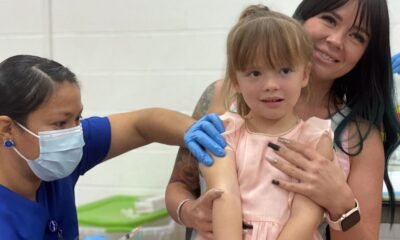Business
Navigating Health Care Reform: A Science-Driven Approach

As the Trump administration introduces its Make America Healthy Again (MAHA) agenda, the potential for transformative health care reform is apparent. With new leadership assuming roles at the Department of Health and Human Services and the Centers for Medicare & Medicaid Services, ambitious proposals are expected to gain traction. There’s a shared hope among health care professionals for broader access, enhanced affordability, and reduced bureaucratic obstacles, yet this moment demands both optimism and scrutiny.
Valle del Sol, a Community Health Center, exemplifies how community-focused, integrated care can change lives. This organization serves individuals and families facing challenges in securing essential medical services. Their experience emphasizes that meaningful health care reform must emphasize accessibility and be firmly grounded in scientific evidence.
Prevention and Affordability: The Leadership of Community Health Centers
The MAHA agenda’s emphasis on preventive care and cost reduction is laudable. Community Health Centers (CHCs) have championed these initiatives for years. Their comprehensive methods do not simply treat illnesses; they tackle the underlying factors contributing to chronic conditions. These include lifestyle choices, nutrition access, and mental health.
Investing in preventive services aligns seamlessly with existing practices at CHCs. By implementing wellness programs and managing chronic diseases, small interventions can lead to significant long-term health improvements. Enhancing these strategies has the potential to redefine health care positively, provided reforms are based on solid evidence and maintain a patient-centric focus.
The Crucial Role of Science in Health Care Reform
Navigating health care policy is inherently complex and must rely heavily on data. While personal accountability is important for health outcomes, systemic barriers require equal attention. Policies overly focused on individual behavior may neglect social determinants like nutritious food access, stable housing, and educational opportunities, which can exacerbate health disparities.
Additionally, innovation within health care requires thorough evaluation. Patients must receive care that is not only effective but also based on proven scientific principles. Rushed and poorly designed policies may undermine public trust, especially in vulnerable populations. Health care is inherently local; therefore, solutions need to be customized to meet specific community needs.
Community Health Centers: Essential Partners in Reform
To genuinely expand access and improve health outcomes, CHCs must be recognized as vital partners in reform. Despite limited resources, they have consistently provided high-quality care to underserved communities. Their adaptability and innovative approaches equip them to help formulate practical health policies.
The MAHA agenda represents a significant chance to enhance national health, but achieving success hinges on humility, careful execution, and unwavering support for science. CHCs like Valle del Sol are prepared to collaborate with policymakers to ensure that the proposed reforms lead to lasting health improvements.
Engaging with individuals who understand patient care realities and the effects of policy on communities is crucial. Those committed to making health care accessible for all should be at the forefront of this dialogue.
By prioritizing evidence-based practices and addressing systemic issues, it is possible to genuinely Make America Healthy Again — translating vision into reality.
Mike Renaud is the president and CEO of Valle del Sol, a Community Health Center that serves 11,582 patients yearly across 66 locations in the Phoenix metro area.


















